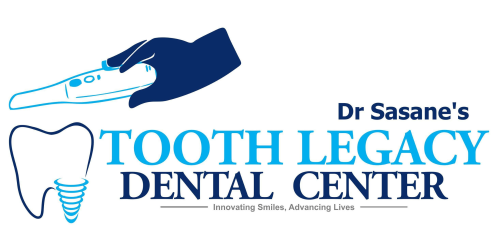
Yes, wisdom teeth can cause ear pain, and it is more common than most people realize. While earaches are often blamed on infections or allergies, dental issues, particularly those involving the third molars or wisdom teeth, can be a hidden source of discomfort. This happens due to the close anatomical relationship between your jaw, nerves, and ears. When a wisdom tooth becomes impacted, infected, or erupts improperly, it can trigger referred pain that radiates to the ear, neck, and even the temple.
If you are experiencing persistent ear pain without signs of an ear infection, especially if it is accompanied by jaw stiffness, gum swelling, or difficulty chewing, your wisdom teeth may be the true cause. In this detailed guide, we will explain the science behind this connection, outline key warning signs, discuss effective relief strategies, and clarify when professional intervention is essential.
Understanding the Connection Between Wisdom Teeth and Ear Pain
The link between wisdom teeth and ear pain lies in human anatomy. The lower wisdom teeth sit near the inferior alveolar nerve, a branch of the trigeminal nerve, which is the primary sensory nerve of the face. This nerve network connects the teeth, jaw, and parts of the ear. When inflammation or pressure builds around a wisdom tooth, pain signals can travel along these shared pathways, leading the brain to interpret the discomfort as originating in the ear.
Additionally, the temporomandibular joint, or TMJ, which controls jaw movement, is located just in front of the ear canal. Swelling or muscle tension from an erupting or impacted wisdom tooth can strain the TMJ, resulting in secondary ear pressure, popping sensations, or aching, often mistaken for an ear infection.
This phenomenon, known as referred pain, explains why many patients report wisdom tooth pain in the ear despite having perfectly healthy ears. Understanding this connection is the first step toward accurate diagnosis and effective treatment.
Common Signs That Your Ear Pain Is Actually from a Wisdom Tooth
Distinguishing dental-related ear pain from true ear pathology is crucial. Here are key indicators that your discomfort may stem from your wisdom teeth:
- One-sided pain: Ear and jaw pain typically occurs on the same side as the problematic wisdom tooth.
- Gum inflammation: Red, swollen, or bleeding gums around the back molars, sometimes with a flap of tissue covering part of the tooth.
- Pain with jaw movement: Difficulty opening your mouth wide, chewing, or talking due to stiffness or soreness.
- Bad taste or odor: A sign of bacterial buildup or infection (pericoronitis) around a partially erupted tooth.
- Radiating discomfort: Pain that extends from the jaw to the ear, neck, or even the shoulder – common with wisdom tooth causing ear and neck pain.
- No response to ear drops or decongestants: If typical earache remedies don’t help, the source may be dental.
These symptoms, especially when clustered strongly suggest that your ear pain due to wisdom tooth is dental in origin. Ignoring them can allow infections to worsen or lead to cyst formation, bone loss, or damage to adjacent teeth.
Why Wisdom Teeth Cause Ear Pain

Wisdom teeth are evolutionary remnants. Most modern human jaws lack the space to accommodate these third molars, leading to complications in over 85% of cases. Here’s how specific issues lead to ear pain:
- Impaction: When a wisdom tooth grows at an angle, horizontally, toward the second molar, or into the jawbone. This creates pressure on surrounding structures. This constant force irritates nerves that share pathways with the ear, resulting in impacted wisdom tooth ear pain.
- Infection (Pericoronitis): Infection, or pericoronitis, develops when partially erupted wisdom teeth create pockets where food and bacteria accumulate. This can cause localized infection, swelling, and pus, leading to wisdom tooth infection ear pain that may worsen when lying down.
- Cysts or Abscesses: Long-standing impaction can trigger fluid-filled cysts or dental abscesses. These expand and press on nerves, potentially causing deep, throbbing ear and jaw pain.
- Bruxism and TMJ Strain: Discomfort from wisdom teeth can alter your bite or cause unconscious jaw clenching, straining the TMJ and contributing to jaw and ear pain wisdom tooth symptoms.
- Nerve Irritation: The proximity of the inferior alveolar and lingual nerves to lower wisdom teeth means even minor inflammation can send pain signals perceived in the ear.
This explains why patients often ask, “Can wisdom teeth affect ears?” and the answer is a definitive yes, especially when dental issues are left untreated.
How to Relieve Ear Pain from Wisdom Teeth (Temporary Measures)
While professional care is ultimately necessary, these at-home strategies can provide short-term relief:
- Warm saltwater rinses: Mix ½ teaspoon of salt in 8 ounces of warm water. Swish gently 3–4 times daily to reduce bacteria and soothe inflamed tissue.
- Cold compress: Apply an ice pack wrapped in a cloth to the outside of your cheek for 15 minutes on, 15 minutes off. This numbs pain and reduces swelling.
- Over-the-counter pain relievers: Ibuprofen (Advil) or naproxen (Aleve) not only ease pain but also reduce inflammation more effectively than acetaminophen for dental-related discomfort.
- Soft diet: Avoid hard, crunchy, or spicy foods that can irritate the area. Stick to soups, mashed potatoes, yogurt, and smoothies.
- Elevate your head while sleeping: This reduces blood flow to the area and minimizes nighttime pain.
Important: These methods manage symptoms but do not resolve the root cause. Delaying dental care can allow infections to spread or lead to more complex extractions later.
When to See a Dentist for Wisdom Tooth Ear Pain
Seek professional evaluation if you experience any of the following:
- Ear or jaw pain lasting more than two days
- Visible swelling in the face or gums
- Pus discharge or foul taste that doesn’t improve with rinsing
- Fever, chills, or swollen lymph nodes under the jaw
- Inability to open your mouth more than two fingers’ width
At Sasane Dental Clinic, we specialize in diagnosing and treating wisdom tooth complications with precision and compassion. Using digital panoramic X-rays and 3D cone beam imaging, we assess tooth position, nerve proximity, and infection extent to determine the best course of action. Whether your case involves mild pericoronitis or a deeply impacted molar causing wisdom teeth symptoms and ear pain, our team provides timely, evidence-based care to restore your comfort and oral health.
How to Prevent Ear Pain from Wisdom Teeth
Prevention is far easier than treatment. Consider these proactive steps:
- Routine dental visits: Starting in early adolescence, regular checkups allow dentists to monitor wisdom tooth development via X-rays, even before symptoms appear.
- Early intervention: If imaging shows high risk of impaction, preemptive extraction (typically in late teens) can prevent future pain and complications.
- Excellent oral hygiene: Brush twice daily, floss thoroughly (including the back molars), and use an antibacterial mouthwash to reduce infection risk.
- Avoid delaying care: Don’t wait for pain to strike. Asymptomatic impacted wisdom teeth can still damage adjacent teeth or bone over time.
By addressing potential issues early, you significantly reduce the likelihood of experiencing wisdom tooth and ear connection problems later in life.
Treatment Options for Impacted or Infected Wisdom Teeth
When conservative measures fail, professional treatment is essential. At Sasane Dental Clinic, we offer a full spectrum of solutions:
- Antibiotics and irrigation: For active infections, we prescribe targeted antibiotics and clean the area to eliminate bacteria.
- Operculectomy: Removal of the gum flap covering a partially erupted tooth to prevent recurrent infection.
- Surgical extraction: For impacted, decayed, or symptomatic wisdom teeth, we perform precise extractions under local anesthesia, nitrous oxide, or IV sedation based on your comfort needs.
- Post-operative care: We provide detailed recovery instructions, pain management plans, and follow-up visits to ensure optimal healing.
Our approach prioritizes minimal trauma, rapid recovery, and long-term oral health. Whether you’re dealing with a wisdom tooth causing earache concerns or acute infection, we tailor treatment to your unique anatomy and needs.
Final Thoughts on Wisdom Teeth and Ear Pain
So, can wisdom teeth cause ear pain? The answer is unequivocally yes. Due to shared nerve pathways and jaw-ear proximity, issues like impaction, infection, or misalignment can easily manifest as ear discomfort, neck pain, or jaw stiffness. Recognizing the signs early and understanding that wisdom tooth pain in the ear is a real and treatable condition is vital to avoiding complications.
If you are experiencing unexplained ear pain alongside dental symptoms, do not assume it is just an ear infection. Contact Sasane Dental Clinic for a thorough evaluation. With advanced diagnostics, compassionate care, and a focus on lasting solutions, we help patients find relief and protect their long-term oral health.
Do not let hidden dental pain disrupt your life. Early action today can prevent bigger problems tomorrow.
Your Questions Answered: Can Wisdom Teeth Cause Ear Pain?
Q: Can wisdom teeth really cause ear pain?
A: Yes, wisdom teeth can cause ear pain due to their proximity to nerves and the temporomandibular joint, which share pathways with the ear, leading to referred pain even when the ear itself is healthy.
Q: Why do wisdom teeth cause pain that radiates to the ear?
A: Because inflammation, pressure, or infection from an impacted or erupting wisdom tooth irritates the trigeminal and inferior alveolar nerves, which transmit pain signals the brain interprets as coming from the ear.
Q: How can I tell if my earache is from wisdom teeth or an ear infection?
A: If your earache is accompanied by gum swelling, jaw stiffness, pain when chewing, bad taste, or one-sided facial discomfort, and it does not improve with ear drops, it is likely dental. True ear infections often include fever, fluid drainage, or recent cold symptoms.
Q: Can impacted wisdom teeth cause ear pressure or ringing?
A: Impacted wisdom teeth can cause a sensation of ear pressure due to TMJ strain or nerve irritation, but they rarely cause true ringing. Persistent ringing should be evaluated by a medical professional.
Q: How long does ear pain from wisdom teeth usually last?
A: Mild ear pain may last two to five days with home care, but if the underlying dental issue, such as impaction or infection, is not treated, the pain can persist for weeks or worsen.
Q: What home remedies can relieve ear pain caused by wisdom teeth?
A: Rinse with warm salt water, apply a cold compress to the cheek, take ibuprofen for pain and inflammation, eat soft foods, and avoid chewing on the affected side. These offer temporary relief but do not fix the root cause.
Q: When should I see a dentist for ear pain caused by wisdom teeth?
A: See a dentist if ear pain lasts more than 48 hours, is severe, comes with swelling, fever, pus, or difficulty opening your mouth, or if over-the-counter remedies do not help.
Q: Will wisdom tooth removal stop ear pain?
A: In most cases, yes. Once the impacted or infected wisdom tooth is removed and healing begins, the referred ear pain resolves completely, often within a few days after surgery.
Q: Can wisdom teeth infections spread and worsen ear pain?
A: Yes, untreated infections like pericoronitis or dental abscesses can spread to surrounding tissues, increasing inflammation and nerve pressure, which may intensify ear and neck pain and lead to serious complications.
Q: Are there preventive measures to avoid ear pain from wisdom teeth?
A: Yes. Regular dental checkups with X-rays in your late teens can detect problematic wisdom teeth early. Preventive extraction before symptoms arise is often the most effective way to avoid ear pain and other complications.




